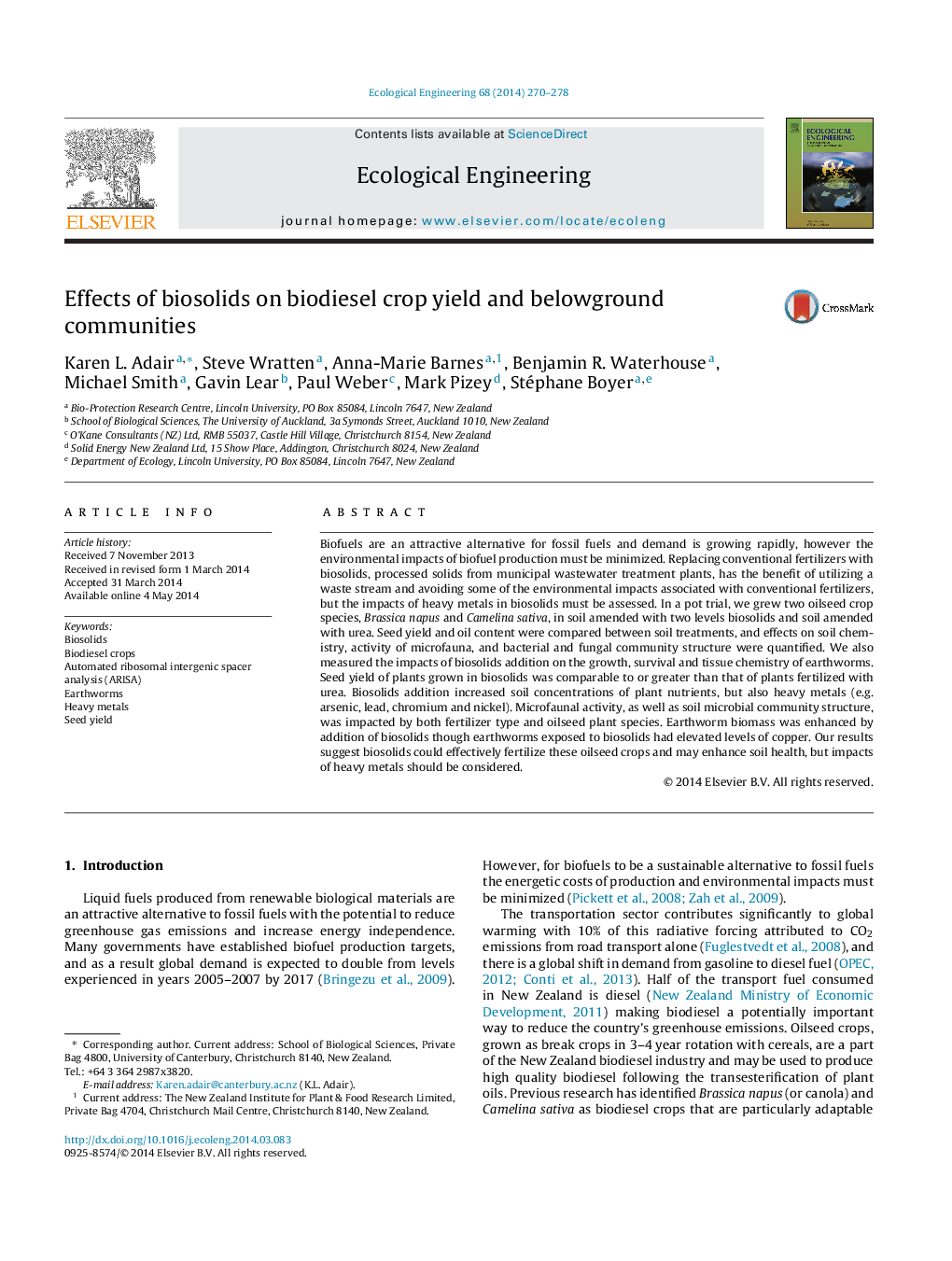| Article ID | Journal | Published Year | Pages | File Type |
|---|---|---|---|---|
| 6302334 | Ecological Engineering | 2014 | 9 Pages |
Biofuels are an attractive alternative for fossil fuels and demand is growing rapidly, however the environmental impacts of biofuel production must be minimized. Replacing conventional fertilizers with biosolids, processed solids from municipal wastewater treatment plants, has the benefit of utilizing a waste stream and avoiding some of the environmental impacts associated with conventional fertilizers, but the impacts of heavy metals in biosolids must be assessed. In a pot trial, we grew two oilseed crop species, Brassica napus and Camelina sativa, in soil amended with two levels biosolids and soil amended with urea. Seed yield and oil content were compared between soil treatments, and effects on soil chemistry, activity of microfauna, and bacterial and fungal community structure were quantified. We also measured the impacts of biosolids addition on the growth, survival and tissue chemistry of earthworms. Seed yield of plants grown in biosolids was comparable to or greater than that of plants fertilized with urea. Biosolids addition increased soil concentrations of plant nutrients, but also heavy metals (e.g. arsenic, lead, chromium and nickel). Microfaunal activity, as well as soil microbial community structure, was impacted by both fertilizer type and oilseed plant species. Earthworm biomass was enhanced by addition of biosolids though earthworms exposed to biosolids had elevated levels of copper. Our results suggest biosolids could effectively fertilize these oilseed crops and may enhance soil health, but impacts of heavy metals should be considered.
